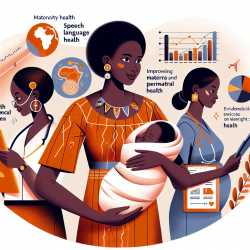Enhancing Maternal and Perinatal Health: Lessons from Uganda and Zambia
At TinyEYE, we are dedicated to improving health outcomes through evidence-based practices. Recent research on maternal and perinatal health care in Uganda and Zambia provides valuable insights for practitioners seeking to enhance their skills and contribute to better health outcomes.
Understanding the Third Delay
The study titled Addressing the Third Delay in Saving Mothers, Giving Life Districts in Uganda and Zambia: Ensuring Adequate and Appropriate Facility-Based Maternal and Perinatal Health Care highlights the critical importance of addressing the third delay—receiving adequate health care after reaching a facility. This delay significantly impacts maternal and newborn health outcomes.
Key Strategies and Outcomes
The research identified six key strategies to improve facility-based care:
- Adequate Infrastructure: Renovating and upgrading facilities to ensure they can provide emergency obstetric and newborn care (EmONC).
- Medical Supplies: Strengthening supply chains to ensure availability of essential drugs and equipment.
- Trained Health Care Providers: Recruiting and training providers to deliver quality care.
- Quality of Care: Implementing evidence-based practices and protocols.
- Referral Systems: Enhancing communication and transportation for timely referrals.
- Health Surveillance: Establishing robust data systems to monitor maternal and perinatal health.
Impact of Interventions
The implementation of these strategies led to significant improvements:
- In Uganda, the number of facilities providing EmONC increased from 10% to 25%, and in Zambia from 6% to 12%.
- The delivery rate in EmONC facilities rose from 28.2% to 41.0% in Uganda and from 26.0% to 29.1% in Zambia.
- Referral communication improved dramatically, ensuring timely access to higher-level care.
- Data systems for maternal and perinatal health surveillance were established and strengthened.
Practical Applications for Practitioners
Practitioners can apply these findings to their work by:
- Advocating for and participating in training programs to enhance their skills in EmONC.
- Ensuring the availability and proper use of essential medical supplies and equipment.
- Implementing and adhering to evidence-based protocols and guidelines.
- Strengthening referral systems within their facilities to ensure timely and appropriate care.
- Engaging in continuous data collection and analysis to monitor health outcomes and identify areas for improvement.
Conclusion
By implementing these evidence-based strategies, practitioners can significantly improve maternal and perinatal health outcomes. Continuous learning and adaptation of best practices are essential to sustain these gains and eliminate preventable maternal and perinatal deaths.
To read the original research paper, please follow this link: Addressing the Third Delay in Saving Mothers, Giving Life Districts in Uganda and Zambia: Ensuring Adequate and Appropriate Facility-Based Maternal and Perinatal Health Care.










